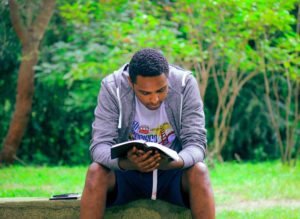Spring 2021
A Nation on Edge: Uniting the States Campus Dialogues
RBC's RACIAL JUSTICE & EQUITY TASK FORCE
The Richard Bland College leadership team is committed to working alongside every member of the College family to actively identify, confront and alleviate racism and discrimination. RBC is committed to boldly articulating and communicating our identity as a multicultural institution of higher education that values, supports and lifts up every individual. In July 2020, President Debbie L. Sydow’s assembled a group of community leaders to form a Task Force on Racial Justice and Equity. The College is proud to promote its Spring presentation series entitled, “A Nation on Edge: Uniting the States Campus Dialogues.”
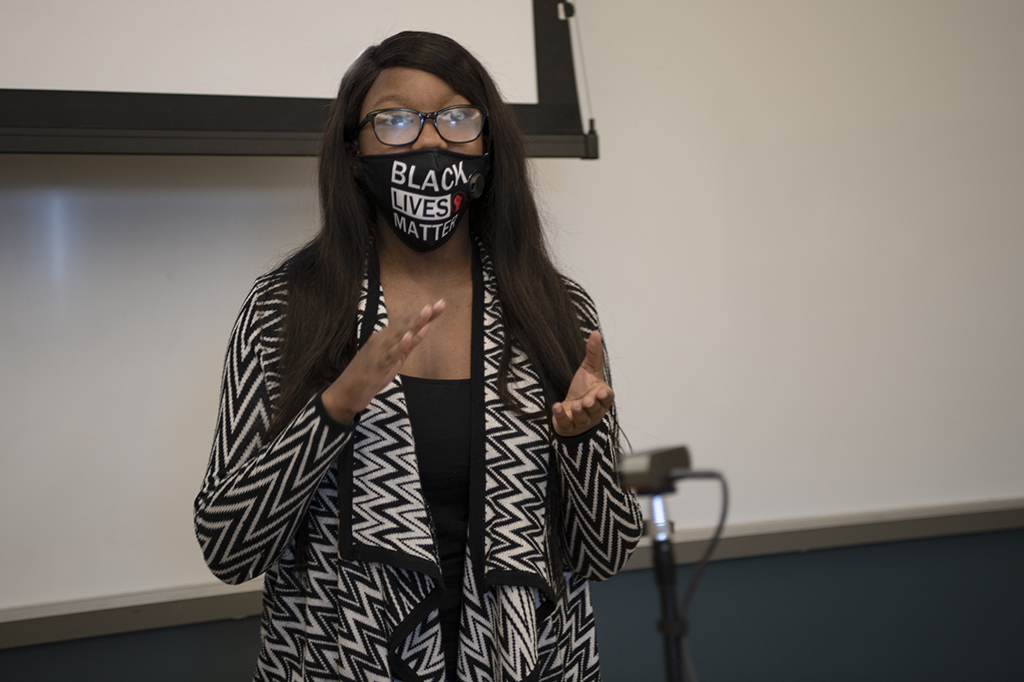
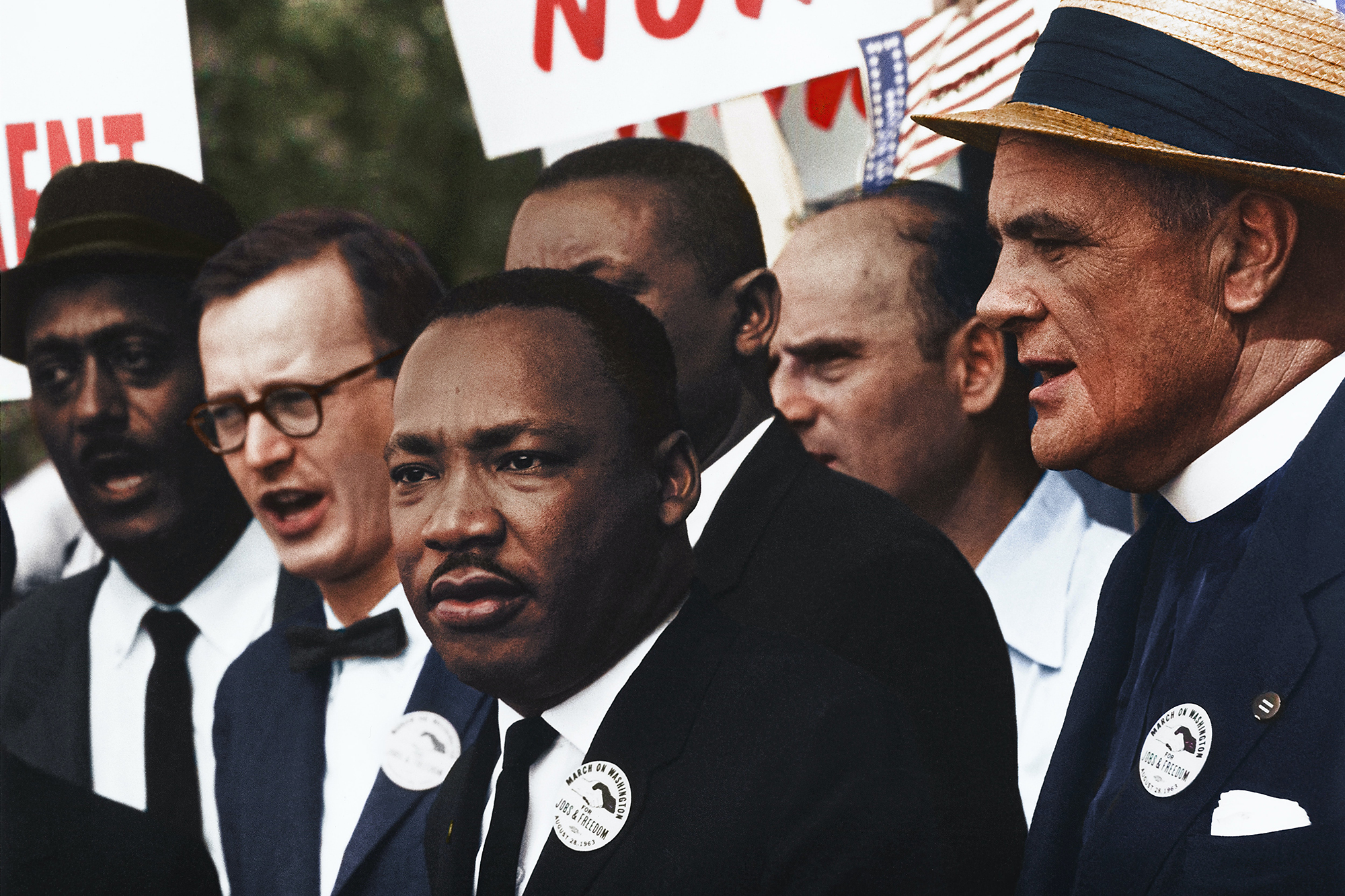
Dr. Martin Luther King Jr.
Civil Rights Activist
Born: January 15, 1929, Atlanta, GA
Assassinated: April 4, 1968, Memphis, TN
Famous Speech: “I Have A Dream”
“Darkness cannot drive out darkness; only light can do that. Hate cannot drive out hate; only love can do that. The time is always right to do what is right.”
White Allies’ Roles in Uniting the States - Thursday, February 4, 2021 @ 3 pm
RBC Faculty Panelists: Dr. Vanessa Stout, Dr. Eric Earnhardt, Dr. David McCarthy, and Dr. Adam Zucconi
Program Moderator: Dr. Evanda Watts-Martinez
Thursday, February 4, 2021 @ 3 pm
Presentation Description:
The inherent rights of the American people are an integral part of life, liberty, and pursuit of happiness. In a “Woke” generation living in an era requiring a higher level of consciousness and awareness of social and racial justice issues, the United States citizens are basing the legitimacy of the government on its ability to safeguard the natural rights of its citizens. Divided communities seared by tensions, unrest, and civil discord need empowerment, strategies, and steps in place to move the racism needle in our country.
More Americans are holding the country accountable for protecting the rights of peaceful people who continue to call for the government to apply the laws equally to everyone. These actions would require a revamp of policies (among other things) which undermine the progress towards dismantling racism, inequality, and exclusion in the nation. A better understanding of the specific, multi-layered, and complex social problems requires a productive dialogue. Join our virtual discussion focusing on how White allies can make it their obligation to be supportive and helpful to the cause for change against racism.
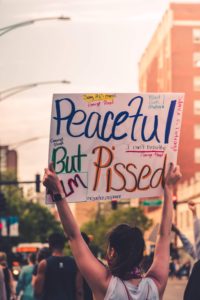
The Black Community’s White Allies: Self-Preparation and Action-Steps Leading to Unification - Thursday, February 11, 2021 @ 3 pm
Presenters: Dr. David Fenrick, Dean of Students, Lutheran Seminary, St. Paul, MN and Dr. Christen Hairston, Director Student Success Initiatives and Clinical Assistant Professor of School of Medicine, University of South Carolina. Dr. Hairston is also the Executive Director of Student Affairs Administration, Health Sciences Center at Prisma Health Upstate- School of Medicine, Greensville, SC
Thursday, February 11, 2021 @ 3 pm
Presentation Description:
On June 1, 2020, Time Magazine published an article entitled, Black and Brown People Have Been Protesting for Centuries. It’s White People Who Are Responsible for What Happens Next. The article reminds us that many White citizens’ lack of fluency around their own and others’ races and ethnicities causes guilt and silence. Contributor, Salvala Trepczynski suggested that the lack of connection with these realities interferes with individuals’ inabilities to resonate with and draw connections between race knowledge and action in a racialized society, which is critical in this new era. Encouraged throughout the last portion of the article was the need for White citizens interested in racial justice work to understand the impact, uses, and deceptions of their own race. Consideration of these realties is necessary if White Allyship will play a role in the healing and unification of communities throughout the United States. A spirited conversation around this article will take place on this session. Please join us in this important discussion!
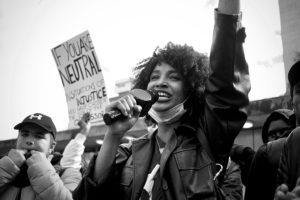
Black Minds and STEM-H: Using STEM-H to Build Community Trust & National Unification - Monday, February 15, 2021 @ 3pm
Presenter: Dr. Edward Joseph, Science Researcher & Forensic Investigator, Office of the Chief Medical Examiner, Baltimore, Maryland.
Monday, February 15, 2021 @ 3 pm
Presentation Description:
With a historical wedge placed between the Black Community and the science and math-oriented fields, Blacks tend to express limited interest in STEM, including the health professions. Whether the cause of the distance is linked to scientific notions justifying systemic racism, the failure to the acknowledge the contributions of Black Scientist, or the community’s fear of being used as guinea pigs for medical and health research, the STEM-H Field continues to be stratified by race, gender, and social class. This session will focus on the distance and lack of distrust that exists between Blacks and STEM-H. Also discussed will be the ways that the STEM-H field has begun to expand its academic curriculum and opened its doors to Black talent who have brilliantly excelled in the STEM-H professional fields. Please join us in this important discussion!

“‘Whither Now and Why’: African American Literature and American Futurity” - Thursday, February 25, 2021 @ 3 pm
Presenter: Dr. Thom Addington, Instructor of English, Richard Bland College of William of Mary
Thursday, February 25, 2021 @ 3 pm
Presentation Description:
In a 1993 interview with the Paris Review, Toni Morrison identified the transformative power of African American literature in its evocation of “a more human future” (Morrison np). Indeed, the tradition constitutes “an archive of feelings,” a “tradition of the tension between individual affect and historical structure” (Crawford 6). How has the African American literary tradition enabled Black people in America to negotiate their present and (re)imagine their future, and what might (re)visiting this tradition offer to our current negotiation of imbricated crises? This session will focus on what we may learn about ourselves and the futurity of the United States – that is, the potential for its continuation and its renewal – from the African American literary tradition. We will consider how writers as Sterling Allen Brown, Toni Morrison, Alexis Pauline Gumbs, and James Baldwin (among others) rendered “a more human future” in their work.
